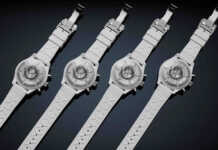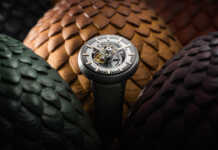
“Casting thicker pieces in resin always presented unique challenges, whether it’s lettering on a class ring, models with thick cross-sections, or generally dealing with the casting defects from bulky resin models. Formlabs has really outdone themselves with the CW40 resin because now, casting larger models are back on the table. CW40 performed amazingly similar to regular injection wax, the high wax content allows sprues to stick more securely, and the surface finish is top-notch. It actually feels like wax in your hands. Many investment breakout issues around lettering and micro-prongs are gone. Casting larger items from resin has never been easier.” Scott Bradford | Jewelry Tech Team, Rio Grande.
Somerville, MA, Jan. 11, 2021 – Formlabs, a leading 3D printing company, today announced Castable Wax 40 Resin at CES 2021, a game-changing jewelry material with industry-leading casting reliability. Castable Wax 40 Resin is the 30th proprietary resin to be added to Formlabs material library, and the 12th in the last year. The introduction of Castable Wax 40 Resin at CES further demonstrates that the next era of 3D printing won’t be driven by hardware, but by materials. End-use products are only as good as the materials that make them, and the groundbreaking materials that Formlabs develops represent 3D printing’s role as a driving force of innovative, customized consumer products across industries.
Formlabs is now not only a leader in 3D printing hardware but also in resin development. Since becoming one of the first 3D printing companies to vertically integrate their material development, Formlabs has introduced more than a dozen new resins and its material science department has played a crucial role in spurring innovation throughout 2020, including providing the FDA approved, biocompatible materials needed to 3D print COVID-19 test swabs during the shortage in early 2020. Biocompatibility is a major mover in 3D printing, and Formlabs is leading that drive. In the past year, Formlabs has introduced 6 new biocompatible resins expanding their use in the dental application by nearly double.
With the launch of Castable Wax 40 Resin, Formlabs continues to focus on bringing reliable, accessible, production-oriented jewelry products to market. It’s easy for jewellers to go digital with Castable Wax 40 Resin. With unmatched casting reliability, Castable Wax 40 Resin produces results similar to blue carving wax, the traditional material used in lost wax casting. They achieved this by developing a 40 percent wax-filled material that is capable of supporting traditional casting conditions. Castable Wax 40 Resin provides jewellers with greater versatility and design freedom than traditional processes all while digitizing their workflow to enable greater efficiency. Castable Wax 40 Resin provides extraordinary end results in a hybrid workflow such as lost wax casting.
“The advancements happening in material science are providing the 3D printing industry with a new level of utility and versatility,” said Dávid Lakatos, Chief Product Officer at Formlabs. “When revolutionary materials are combined with the unique structures 3D printers can create, the end products better meet the needs and expectations of consumers. With our rapidly growing array of materials, we are able to continually expand the list of industries that can benefit from 3D printing.”
The latest material in Formlabs’ library, Castable Wax 40 Resin, demonstrates the company’s commitment to incorporating user feedback into the material development process. Formlabs worked with GIA, the world’s foremost authority on diamonds, coloured stones, and pearls, and Rio Grande, one of the largest jewelry findings, tools, and equipment suppliers in the world, to develop the qualities of Castable Wax 40 Resin that make it ideally suited for end-use jewelry.
Kathy Bui, Formlabs Engineering Vertical Lead, added: “Resins can be soft and stretchy, tough and sturdy, strong and rigid and they can also be biocompatible and FDA approved to be in contact with the skin or mucous membranes. At Formlabs, we’re always working on pushing the boundaries of what’s possible in additive manufacturing and materials are central to that. New materials unlock new applications, from everyday products like a pair of shoes used in a marathon to medical devices and surgical guides that assist in the operating room.”




















